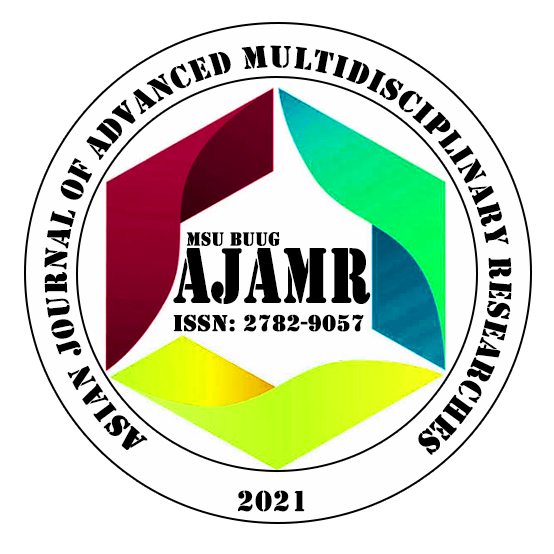

Authors: Ledivie G. Quimno, Ronie B. Claro, Floriefe G. Torino
College of Fisheries, Mindanao State University Buug – R.T. Lim Extension, R.T. Lim Zamboanga Sibugay, Philippines
Email: floriefe.torino@msubuug.edu.ph
ABSTRACT
This study investigated the potential of Singapore vinegar crab (Episesarma singaporense) and mud clams (Polymesoda erosa) as a low-cost diet for
crab fattening. The performance of these natural diets was evaluated on the growth and survival of mangrove crabs (Scylla olivacea) over a period of
twenty-eight days. Fifteen healthy mangrove crabs with an average body weight of 130 grams and an average carapace length of 3.46 inches were used
as experimental organisms. The study comprised three treatments: Treatment 1 (TFM) served as the control group using Trash Fish Meal, Treatment 2
(MCM) involved Mud Clam Meal, and Treatment 3 (SVCM) utilized Singapore Vinegar Crab Meal. Each treatment was replicated five times, and the
feeding rate was set at 10% of the crab's average body weight. The results of the study shows that SVCM exhibited superior performance in terms of
weight gain, carapace increment, survival rate, FCR, and FCE. However, statistical analysis (ANOVA) revealed no significant differences in mean
weight gain, mean carapace increment, survival rate, FCR and FCE among the mangrove crabs fed with SVCM, MCM, and TFM, indicating there was
no adverse effects on the crabs as it shows normal growth and survival. The results suggest that, in the absence of readily available trash fish meal,
both MCM and SVCM can serve as suitable alternatives, as all treatments exhibited survival rates exceeding 80%. Further investigations are warranted
to explore the long-term effects and nutritional composition of these alternative diets on mangrove crab growth and health.
Keywords: crab fattening, low-cost diet, fish meal replacement, aquaculture, growth performance